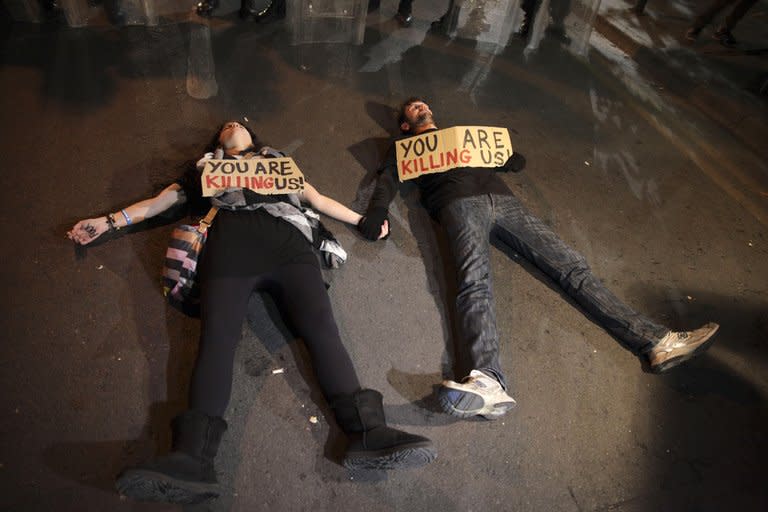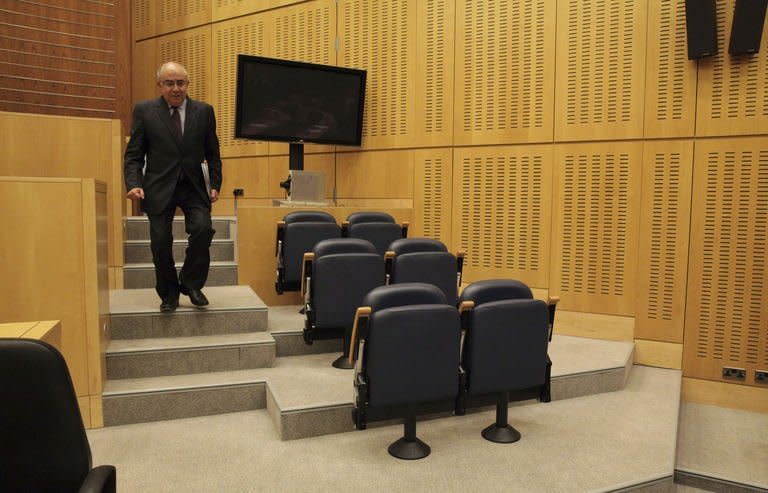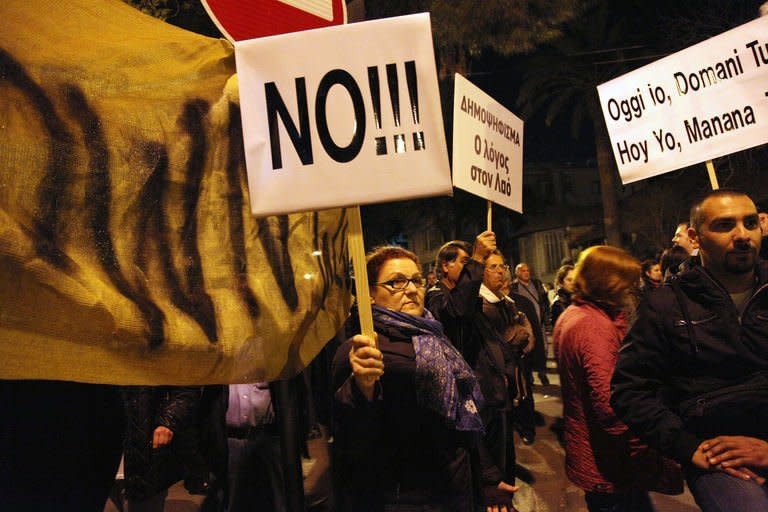Emergency meeting after Cyprus MPs reject bank levy
Cypriot President Nicos Anastasiades has called an emergency meeting of party leaders Wednesday in a frantic search for a viable plan B after MPs rejected the terms of an EU bailout aimed at saving Cyprus from bankruptcy. Angry lawmakers on Tuesday voiced their disapproval for a divisive levy on bank accounts, devised as part of the bailout EU-IMF rescue package, decrying as "blackmail" the recently forged deal which already lies in tatters. Under the bailout deal reached at the weekend, the troika of the European Union, European Central Bank and International Monetary Fund were to provide Cyprus with 10 billion euros ($13 billion) on condition the island raises another 5.8 billion euros. It called for a levy of up to 9.9 percent to be slapped on all Cyprus bank deposits, an unprecedented move that triggered outrage among savers and raised fears other financially crippled EU states like Italy and Spain could be next. The Cypriot government backtracked, and on Tuesday dropped the proposed tax on savings below 20,000, while keeping it at 6.75 percent for deposits of 20,000-100,000 euros and 9.9 percent for those above 100,000. But that too was heavily criticised by the speaker as amounting to "blackmail" before it was flatly rejected in parliament, in a vote that plunges the eurozone into uncertainly and leaves Cyprus scrambling for other sources of financing. Speaker Yiannakis Omirou said 36 MPs voted against the bill, 19 abstained and none were in favour, prompting an explosion of joy outside the parliament among thousands of protesters who were demanding the house spurn the onerous measures. President Nicos Anastasiades' office said he "fully respects" the decision and that he had a "constructive" phone conversation with his Russian counterpart Vladimir Putin, amid reports Cyprus was seeking alternative financing. Anastasiades called an emergency meeting of party leaders for Wednesday morning to "examine alternative plans to address the situation that may arise following... the parliamentary vote". Later Tuesday eurozone finance ministers said they remain ready to help Cyprus. "I confirm that the Eurogroup stands ready to assist Cyprus in its reform efforts," Dutch Finance Minister Jeroen Dijsselbloem said in a brief statement. Dijsselbloem, who heads the group, gave no indication of what further step the 17-nation eurozone might take to help Cyprus. Meanwhile Germany, which has taken a very hard line on the Cyprus rescue, said it regretted the outcome of the parliamentary vote and warned Nicosia against taking the easy option. "For a rescue plan to exist we need a credible way to know how Cyprus will regain access to financial markets. For now the debt is too high ... it must be reduced," German Finance Minister Wolfgang Schaeuble said in a television interview. Warning against "irresponsible solutions," Schaeuble said "the situation is serious but this must not lead us to take decisions that make no sense." The ECB said it would continue to provide financial support for troubled Cypriot banks and a eurozone official said it was now up to Nicosia to come up with "a counter-proposal of equivalent effect". Media reports on the island said the government would seek other ways of making up a 5.8 billion-euro shortfall, with a bond issue, bank restructure and trying to secure more Russian investments among the options. Fearing a run on accounts, Cyprus has shut its banks until at least Thursday, with the island's stock exchange closed for the same period. Given the latest developments, there was no certainty the institutions would open this week at all. As the island's leaders raced to stave off bankruptcy, Finance Minister Michalis Sarris was on his way to Moscow to seek an extension to an existing Russian loan. Finance ministry director Andreas Charalambous told reporters that securing an extension to the loan was "very important" as it would throw Cyprus a lifeline. Moscow extended Nicosia a 2.5-billion-euro loan in 2011 at a rate of 4.5 percent. Sarris's goal was to lower that rate and extend the loan's expiration date until 2020 from 2016, reports said.

 Yahoo Finance
Yahoo Finance 



